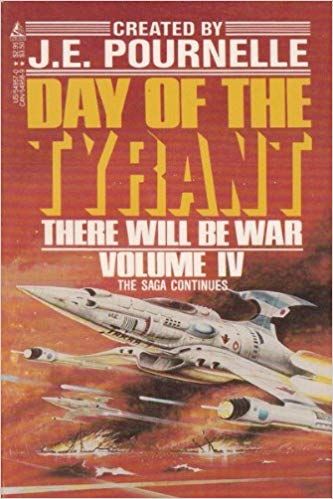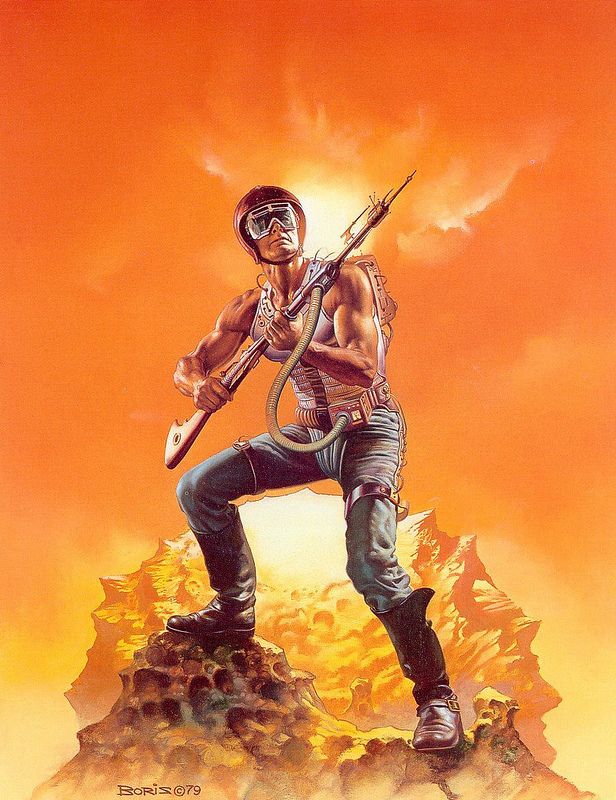Recently they mentioned Pournelle's The Mercenary over at the Castalia House blog.
In the summer between middle and high schools, shortly after moving to a new school system yet again due to the usual military brat lifestyle, I hit up the new library and found a beat up book in the spinner of those they were trying to sell off to make room with a muscular semi-futuristic soldier holding a rifle against an orange background.
I was already familiar with Boris Vallejo though it wasn't his best, but the author caught my eye. Pournelle.
I had yet to read more than a couple short stories by him, but I was already very familiar with him courtesy of having bought the fourth of the "There Will Be War" books, Day of the Tyrant with a cool shot of a futuristic fighter zooming low over the ground in an attack run. I decided to give it a shot.

At first it was a bit confusing because the story jumped around. Some political intrigue, a young officer starts his career, and all of a sudden we leap forward and he's being cashiered out in a drawdown with his company of troops, soon to no longer be CoDominium Marines. As an aside, Jerry got the specifics wrong, but the spirit of a new globalist world order entirely right.
Then you hit the "holy shit" moment where a small company of mercs butchers a stadium full of civilians with rifle and bayonet.
I was drawn in. And read the rest.
There's a reason why I still, decades later, have that battered pocket books edition on my shelf. It's not the great storytelling - though there is that. It's not that it's complete - the overall series of Falkenberg stories have been expanded via "West of Honor" and "Go Tell the Spartans" , among others, as well as the Omnibus The Prince which included all of the works.
It is because with this book began a love affair with history that public school had nearly beaten and bored out of me.
Sure, there's a hint right up front in the Acknowledgments. "The battle in Chapter XIX is based in large part on the actual experience of Lieutenant Zeneke Asfaw, Ethiopian Imperial Guard, during the Korean War."
And of his own short stories picked for "There Will be War" he notes the historic precedents, such as the Spanish Civil War.
But it was the mind-blowing realization a few years after high school that the massacre I mentioned above, that entire short story, was a reskin of the Nika revolt, that woke me up to how much I had missed.

